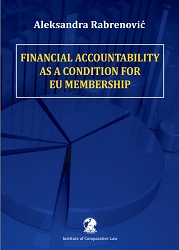
We kindly inform you that, as long as the subject affiliation of our 300.000+ articles is in progress, you might get unsufficient or no results on your third level or second level search. In this case, please broaden your search criteria.

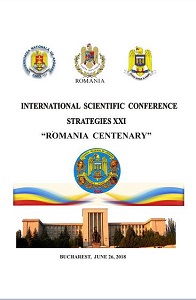
Political leaders in the European Union are confronted with a complex issue. Citizens want the authorities to find solutions to the major problems they face, but they do not trust EU institutions and policies. This situation, recognized by national parliaments and governments, is particularly acute at the level of the European Union. There is mistrust that a complex political-administrative system can apply viable, successful policies. Citizens want the European Union to be the first to take advantage of globalization opportunities in terms of economic development and to respond to the challenges of the environment, unemployment, food security, crime and regional conflicts. The Union must act as transparent as national governments. Democratic institutions and citizens' representatives, both at national and European level, have a duty to ensure respect for European Union law. This is the initial condition for the development of effective and relevant policies. The development of a legal and administrative system for the protection of human rights in the European Union's administrative space is a major objective for the EU institutions.
More...
This book aims at studying the evolution of the internal market of the European Union, analyzing how to harmonize the national laws of the Member States on the free movement of goods, persons, services and capital and then proposing to increase administrative convergence between Member State administrations, from the desire to increase the degree of integration and interconnection of states within the single market. This research carried out contributes to the opening of new research directions in the field of European Union law: regulating the convergence between the economies of the European Union states that make up the European Economic Area; interdisciplinarity in the study of the European Union. The book contributes to the development of sub-issues of European Union law - the Law of the internal market of the European Union, which until now has not received any particular attention from the doctrine, although practice has shown that there are many problems that call for in-depth research to provide solutions to increase efficiency in the functioning of the single market.
More...
It is important to communicate to the public at large that security and defense ‘matters’ now, and that it will matter to their future prosperity, even if our citizens do not necessarily see an immediate external security threat. Heads of State and Government are uniquely placed to pass this message to a wider public, and we should not miss that occasion. Preparations for the European Council discussion have already provided an opportunity to raise the visibility of CSDP in general. The EEAS, in collaboration with the General Secretariat of the Council and the Commission, is working on a specific communication campaign. This needs to be linked to the communication efforts of the Member States. However, further analysis of our target audiences, messages, and tools is necessary to improve CSDP’s visibility in a sustainable way. A targeted Eurobarometer survey on Security and Defence could contribute to this analysis.
More...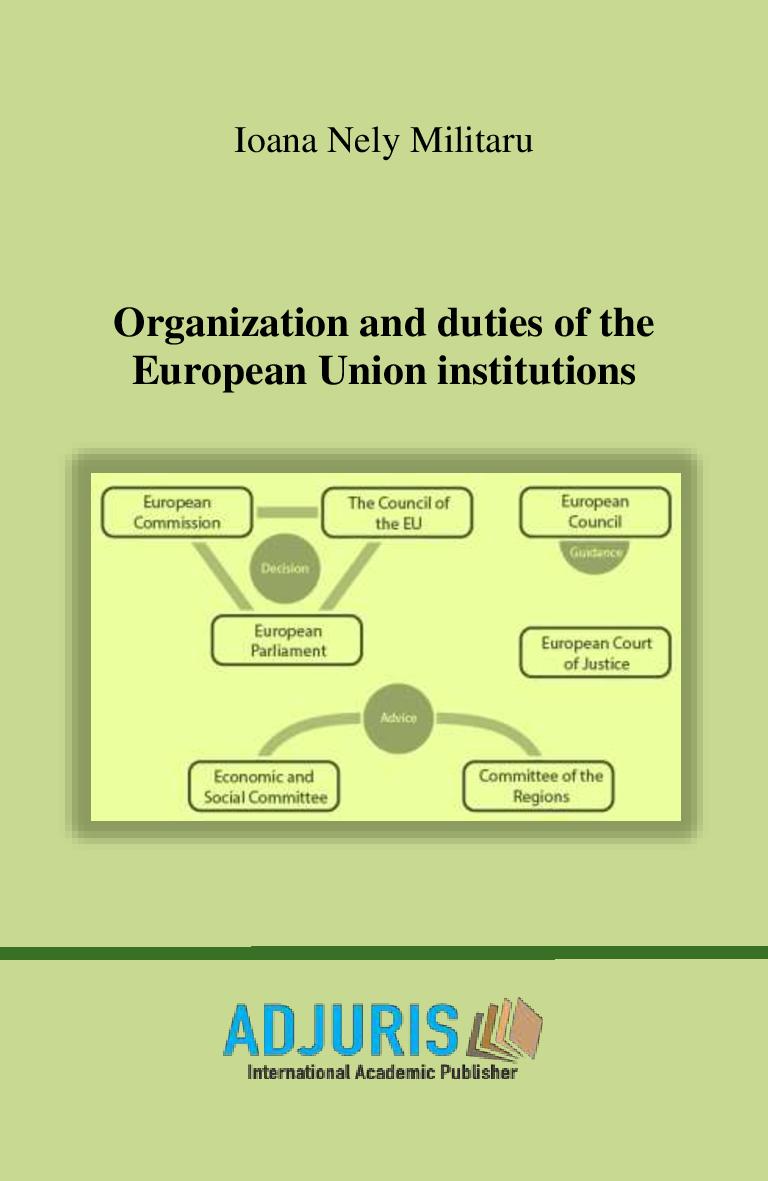
The European Union has a unique institutional framework aimed at promoting its values, pursuing its objectives and supporting its interests, its citizens and Member States, as well as ensuring the coherence, effectiveness and continuity of its policies and actions. The first Community institutions were created by the Treaty establishing the Coal and Steel Economic Community (from 1952, which established the coal and steel market), respectively the Treaty establishing the European Atomic Energy Community (from 1958, which established a generalized European common market). to the entire economy and to the field of atomic energy). Each treaty subsequent to the institutional treaties of the European Communities has contributed to the development of community institutions and the elimination of trade barriers between Member States with the aim of increasing economic prosperity and contributing to a "deeper union between the nations of Europe".
More...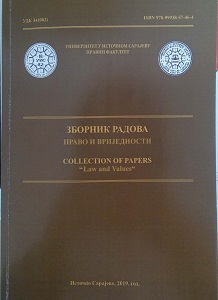
The founding treaties of the European Communities, and later of the European Union, did not attempt to establish any special classification of their powers. Nevertheless, as early as the 1970s, the EC institutions, primarily the Court of Justice, began to make a distinction between exclusive and competing powers. Since the adoption of the Single European Act, founding treaties started envisaging powers which could not be classified in either of the two categories. In the meantime, the number of these types of powers increased with the establishment of the European Union by the Treaty of Maastricht and the subsequent amendments to the founding treaties made in Amsterdam and Nice.The founding fathers of the Lisbon Treaty relied on the achievements of previous EU practice. An analysis of the relevant articles of this treaty, and above all the Treaty on the Functioning of the European Union, points to two basic categories of powers: exclusive and non-exclusive powers. Non-exclusive powers include shared and complementary powers. The latter includes EU’s powers to support, coordinate and supplement Member State activities, as well as the coordination powers that the EU enjoys in the area of economic policy, employment and social policy, regardless of the fact that they are specified in different articles. As a result of the earlier pillar structure, in the Lisbon Treaty, the powers in the area of common foreign and security policy are set out as a separate category.
More...
Given the importance of the European Convention for the Prevention of Torture and Inhuman or Degrading Treatment or Punishment, and the fact that on its base the European Committee for the Prevention of Torture and Inhuman or Degrading Treatment and Punishment (CPT) has been established, this essay aims to present the role and importance of this Committee. It has been established with the task to, through visiting institutions where persons are deprived of their liberty or arrested, examine how they are treat- ed in order, if necessary, to increase the level of protection of such people from torture, inhuman or degrading treatment or punishment. In organizing its visits, the Committee has not bypassed our country and in this essay some segments of the visits to the local institutions as well as the recommendations which were addressed to them will be shown.
More...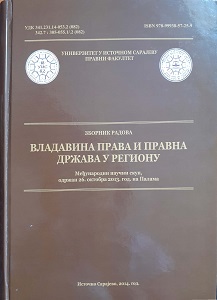
The founding treaties of the European Union do not recognize the notion of direct effect, but only direct application, which is specifically related to regulations as specific and the most important type of EU legal acts. Direct effect is nowadays a widely accepted principle of European Union law, despite the fact that it is not explicitly mentioned. As a creation of the Court of Justice, this principle defines that provisions of EU law directly create rights and obligations for natural and legal persons in Member States which can be lawfully invoked before national authorities and courts. At the same time, it bounds the courts of Member States to apply the norm referred to by the individual subject, and so ensure the realization of this right.The Court of Justice of the EU at first only recognized direct effect to provisions of the founding treaties, but later on it extended the scope of application of this principle in several directions. Thus, provisions contained in other international treaties, which constitute primary sources of EU law, were also recognized as to having direct effect. These inter-national treaties, which the Union concludes on grounds of its contractual capacity, are ones concluded with non-member states or other international organizations.Furthermore, the case law began to distinguish two types of legal issues that arose regarding the direct effect of provisions of international treaties. The Court of Justice initially recognized that individual subjects can only refer to their subjective rights established by these provisions in respect to (versus) a Member State. This is the so-called vertical direct effect whereby the individual is opposed to the state government. After-wards, the Court of Justice accepted the so-called horizontal direct effect of contractual provisions, which is the possibility that an individual can call upon provisions of an international treaty which stipulates duties of another individual subject for the protection of their individual rights, be-fore a national authority or court. Finally, parallel with the expansion of treaty provisions that have direct effect, the jurisprudence confirmed that other sources of EU law may also have this type of effect. The Court of Justice included the norms contained in so-called secondary legislation, which is provisions of regulations, decisions and directives issued by the EU institutions, to the set of legal rules with direct effect
More...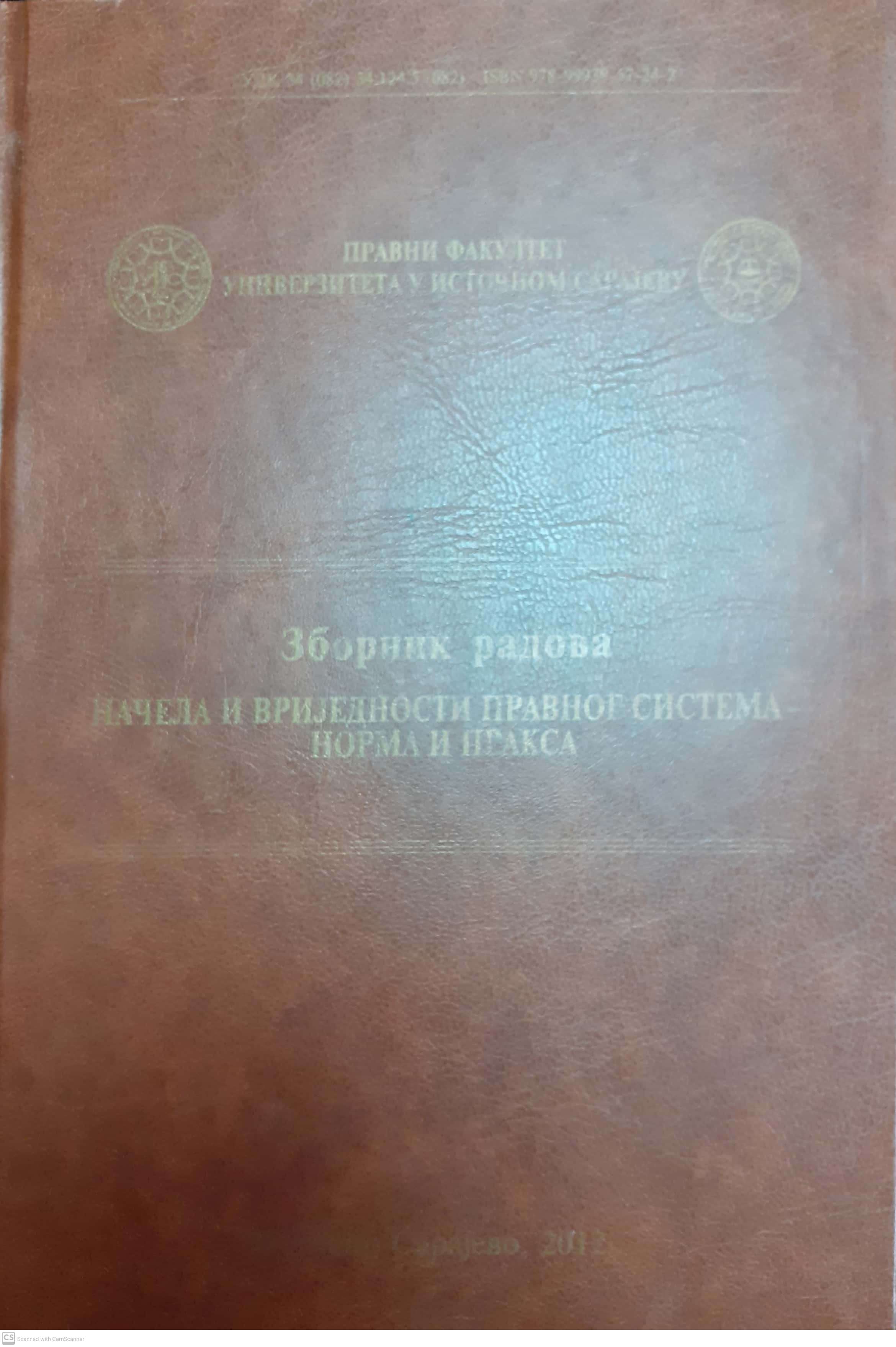
It is not possible that any legal system gives a solution for every situation that can arise in practice. The judges are, therefore, sometimes obliged to create legal rule to decide issue before them. Ancient principle of Roman law – non liquet is abandoned today and judge has no possibility to decline his jurisdiction because there is no clear legal provision. General principles of law are unwritten sources of law and they are used in cases where the legislation does not settle the issue. English courts use the doctrine of stare decides to justify its role of a rule-maker while the ECJ for the same purpose uses general principles of law. The ECJ has developed a doctrine that rules of EU law can be derived not only from the treaties and legislation but also from the general principles of law. General principles of law are part of EU primary legislation. In founding the general principles of EU Law, the ECJ draw up inspiration from constitutional traditions common to Member States and international treaties on which the Member are signatories (e.g. The European Convention on Human Rights). The aim of this paper is to provide an overview of general principles of law in case law of the ECJ.
More...
Many suspects and accused persons have intellectual or psychosocial impairments that, if not identified on time, may affect their ability to effectively and fairly participate in the criminal proceedings. Unlike age and physical illness, which are easily recognised, intellectual and psychosocial disabilities are not always visible and may remain unnoticed or misinterpreted. While some people may inform the criminal justice authorities of their disability, others may not be aware of their condition or try to hide it to avoid stigmatisation and intimidation. This manual is designed to provide criminal justice practitioners with practical guidelines on how to identify and communicate with suspects and accused persons with intellectual and psychosocial impairments considering their vulnerable situation and respecting their rights.
More...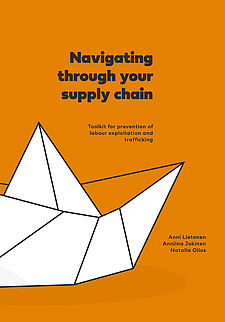
In recent years, cases of labour exploitation in supply/subcontracting chains have been uncovered around the world, as well as in Europe. Outsourcing of work or services through subcontractors/suppliers or use of temporary workers in flexible employment relationships heighten the risk of exploitative working conditions. The working conditions in lengthy subcontracting chains might be difficult for companies to uncover. Everything may seem legal on paper but in reality, exploited migrant workers might work long hours in poor conditions, which are below national standards, and they have little or no possibility to change their situation. To protect the rights of migrant workers, to promote fair competition and decent work, as well as to avoid negative publicity businesses have a responsibility to address the risk of labour exploitation and human trafficking in their subcontracting or supply chains. This risk management toolkit has been developed with the purpose to give companies a brief overview of what labour exploitation and trafficking are, as well as to demonstrate the risks for businesses, and how involvement in such scenarios can be effectively avoided.
More...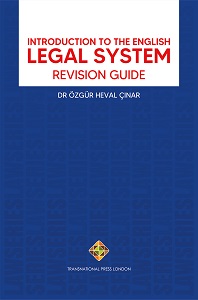
The real reason for the emergence of this book is that it is hard to find resources to explain complex issues of the EU Law in plain language, which makes it very difficult for those taking an interest, in particular law students. Moreover, many years of teaching experience in this subject and seeing students experience difficulties is the key driver behind this book. This book does not repeat material that is available in many textbooks that are in print. Rather, it endeavours to present every topic in plain language and concludes every chapter with a fictitious explanatory sample case. In other words, it is an introduction to the subject of EU Law, the objective of which is to explain the topic both theoretically and in its application dimension. Additionally, this book will assist students to prepare for courseworks/examinations. At the end of the book there is also a test that summarizes all the subjects contained in the book, which is appropriate to the first stage SQE (Solicitors Qualifying Examination) examination model that will be introduced in September 2021.
More...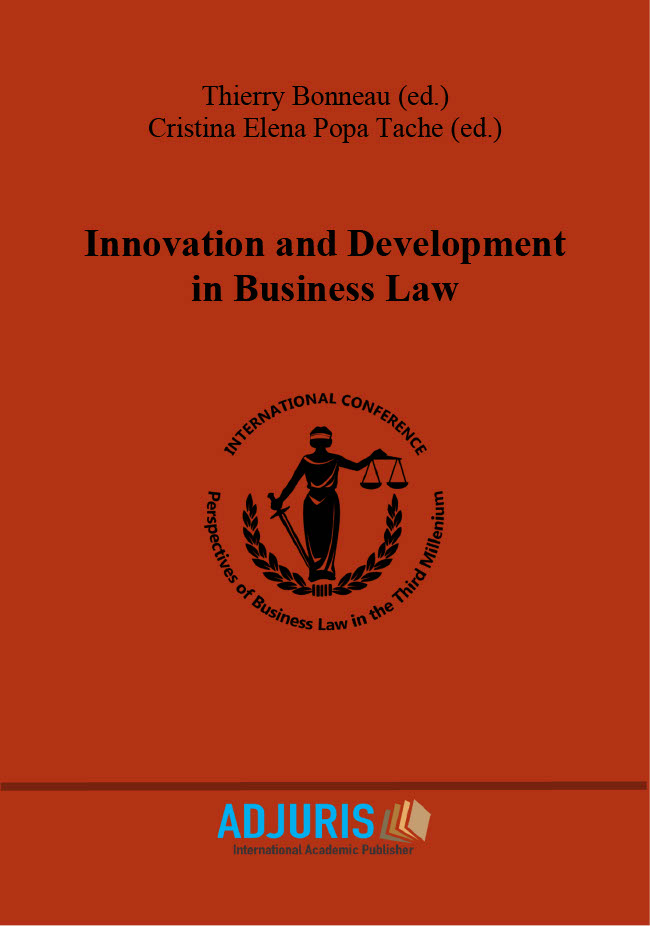
European Union regulations must comply with the fundamental principles of Public International Law, as set out in the operative part of the Treaty of Lisbon. Consequently, this legal-political architecture establishes the four freedoms. Among these, freedom of movement is one of the most important, not only in terms of the coherence needed in conducting business, but also in the importance that Member States attach to achieving an ever-closer link between European nations, an objective already mentioned in the preamble of the Union Treaty. This objective is closely linked to the political concept of European citizenship, which will also have to be argued from a legal point of view. This article aims at highlighting some of the legal aspects of citizenship, which will have to be at the core of the concept of a united Europe, being able to be recognized as such by all Member States.
More...
Being launched in 1962, the common agricultural policy represents an enormous partnership between the society itself and its farmers. The importance of the existence of a set of legal documents that focus on these aspects is justified especially due to the fact that statistically, despite the importance of the food production, farmers' incomes are about 40% lower than the incomes obtained in other fields of activity, due to the dependency of agriculture on the weather and climate conditions. The current study, therefore, aims in presenting a summary of the main legislative measures taken in the agricultural field by the European Union, trying to emphasize aspects that still need to find a solution for, in order for the farmers to maintain the profitability of their activity.
More...
The research focuses on the European Commission's regulations for herbal medicines marketing registration and its impact on its businesses. The following study uses empirical research, which includes the analysis of several articles and technical documents. The study will examine the European Commission's directives for standardizing herbal medicines' registration procedures on the European market. According to WHO, of the 500,000 species, only 22,000 plants are used in traditional medicine, while only 3,000 have been scientifically evaluated. These data highlight the need to simplify the registration procedure, allow the process to be streamlined, and launch on the European market as many herbal medicines as possible. The costs involved in herbal medicine manufacturing sum to between € 90,000 and € 140,000 for each medicine plant. A large part of the costs is generated by the clinical tests required for the product registration process. However, the simplified registration procedure exempts products that can prove a 15-30 year history of components usage in the European space.
More...
The European institutions have responded to the Covid-19 pandemic through a series of legislative initiatives aimed at supporting the business environment and reducing both the financial and social impact. We have analyzed several packages of legislative measures enacted at European level and how they have been transposed into national legislation.
More...
The principle of subsidiarity is a principle of regulation of the exercise of Union powers, which allows each institution in the exercise of its powers to ensure that the principle of subsidiarity is respected. The principle is evolving taking into account the fact that the Single European Act (1987) provided for as a criterion, not a principle, for the Treaty of Lisbon to regulate the principle in art. 5 para. 3 of the TEU, adding an explicit reference to the regional and local dimension of the principle of subsidiarity.
More...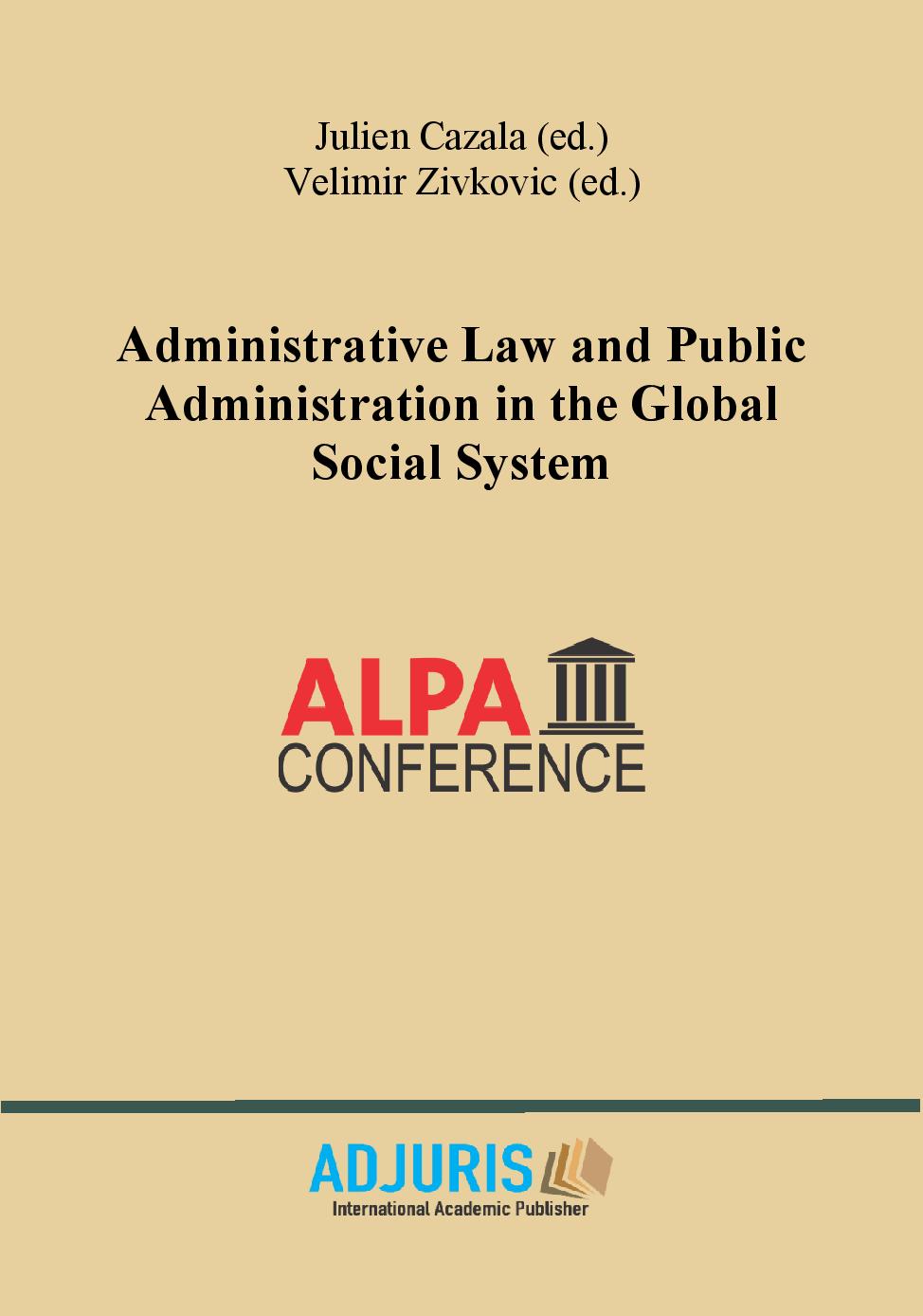
In recent years, numerous irregularities have been found within organizations, respectively enterprises, in the public and private sectors. These irregularities are capable of seriously harming the public and private interests, respectively, in the medium and long term. In order to prevent possible irregularities, it was necessary to guarantee the protection of whistleblowers, given that their identity is made public. In order to strengthen the protection of whistleblowers at European Union level, the Commission proposes a directive on the protection of persons reporting infringements of European Union law. The Commission's approach is based on the case law of the European Court of Human Rights on the right to freedom of expression and the 2014 Council of Europe Recommendation on the protection of whistleblowers.
More...
This material presents an analysis of the control exercised by the courts over insolvency practitioners for the conduct of insolvency proceedings. Depending on the legal systems and the choice of the legislator, the Member States of the European Union have chosen differently on the way of how the court intervenes in the conduct of insolvency proceedings. Thus, there are opinions according to which the insolvency procedure must be carried out entirely outside the court, but also opinions according to which the court must have a significant control within the insolvency procedure. The Romanian legislator combined the two opinions, totally opposite, establishing that the court, through judges specialized in insolvency, should have legal control over the conduct of insolvency proceedings, and only in cases expressly provided by law, to exercise control over opportunity.
More...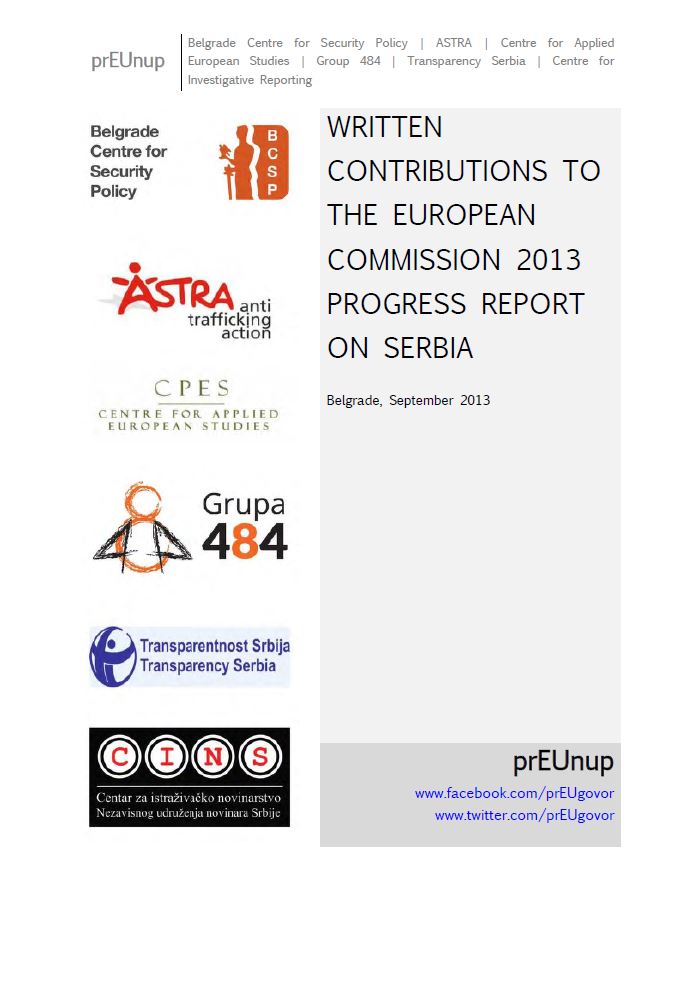
Overall, the progress Serbia has made in areas the “prEUnup” report covers is uneven and erratic. In some areas significant steps have been made both in terms of legislative improvements and better implementation, while others have been almost a blind spot of the current government. It seems that progress is more driven by specific agendas of political actors than by regular functioning of the institutional arrangements in place.
More...